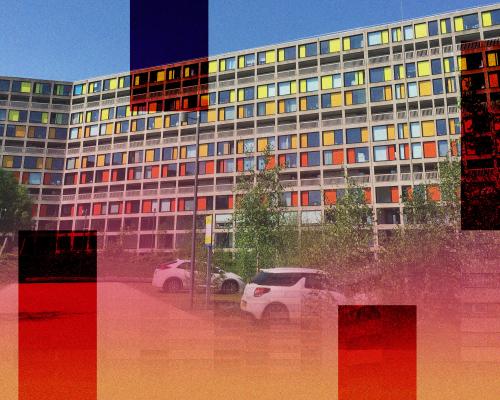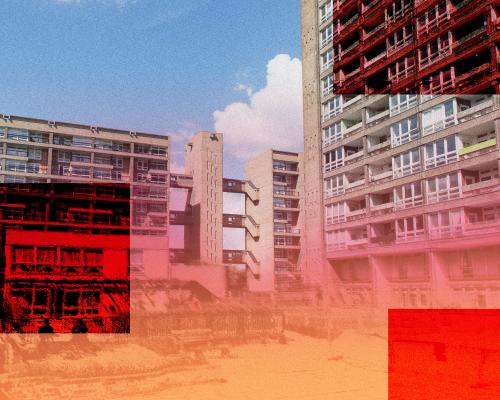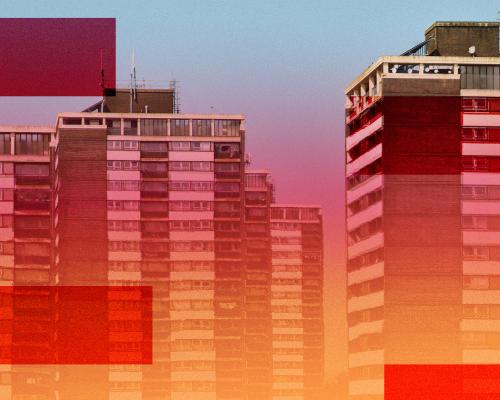
Extremely hot days in summer are becoming more normal across the globe, but in the UK and other typically mild countries, our homes are not prepared. A third of UK homes are susceptible to overheating, and research shows that renters, people with young children and those from ethnic minorities are at particular risk of living in dangerously hot homes in England.
So what can be done to cool down homes?
End the urban heat island effect
Cities are generally much less well-equipped for heat than areas with smaller populations. Hot days can be unbearable in those that have not been adapted to a heating climate.
Many cities are built with dark surfaces – think asphalt, bricks and concrete – which absorb sunlight during the day and then release it slowly at night. This creates scorching areas in the daytime and stops the city cooling in the evening, keeping everyone overly hot.
Cities including Athens, Algiers and Barcelona have been experimenting with high solar reflective surfaces, which bounce back sunlight instead of absorbing it.
Think Mediterranean
Picture a flat in London and it’s unlikely you’ll think of a home in a shady square with shutters and a balcony, painted in a pale colour. This sounds more like a Mediterranean apartment a Londoner may visit in the summer.
But shutters block the sun’s rays and create shade in the home. In countries that have traditionally had hotter summers, people know it’s important to keep sunshine out of the home to cool it down. Government figures show that almost 91% of households in England throw open windows to cool down the house, while just under 11% of us, rising to 16% in London, use shutters.
Opening windows at night, once the outside air has cooled, can help to cool down a home. About 70% of households in the north of England say they always do this, compared with 63% in London, which takes longer to cool down.
Reflective paint on roofs and outdoor surfaces are also key, as is the design of the home, which should allow ventilation and airflow to cool rooms when windows are open.
Green up the local area
Trees near a home help to alleviate that terrible feeling of a hot, sticky summer night, which leads to days without adequate rest during a heatwave. Studies have found that street trees can keep the area around them up to 5C cooler during the evening.
The UK Green Building Council advocates a 3:30:300 approach: you should be able to see three trees from your dwelling; you should have 30% tree canopy cover in your neighbourhood; and you should be no more than 300 metres from a biodiverse green space or park.
Almost half of neighbourhoods in English towns and cities have less than 10% tree cover, however, and more than a third lack adequate access to green space.
Cities around the world are trying this. Beijing, for example, is in the process of building five ventilation corridors more than 500 metres wide, which will link to rivers and green spaces.
Use heat pumps for air conditioning, particularly in flats
Air conditioning hasn’t been necessary in the UK and other mild countries, but now hot summer days are becoming the norm, it’s something people are thinking about. Only 3.6% of households in England keep cool using an air conditioner – ranging from 1.5% in the north-west to 5.7% in London, according to English Housing Survey figures. Instead more than half of households use mechanical fans, which circulate air and create a cooling breeze but don’t lower the temperature of the air.
Ministers are now considering subsidising the installation of air conditioning in the UK for the first time.
The boiler upgrade scheme offers households a substantial discount on the installation of air-source heat pumps, efficient electrical alternatives to gas boilers, in order to cut fossil fuel use and meet net zero targets. Until now only standard heat pumps have been eligible for the grants, but a form of technology exists that can heat and cool buildings. “Air-to-air” heat pumps take in air from outside and pass it through a heat exchanger to create hotter or cooler air that is pumped into the home.






